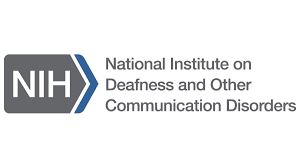Principal Investigator:
Collaborators:
- Dr. Julia Lee
- Dr. Rick McGee
- Dr. Ying Wu
- Dr. Sumitrajit Dhar
- Dr. Darren Gergle
- Dr. Leslie DeChurch
- Dr. Noshir Contractor
- Dr. Jonathan Beall
- Kate Davidson
Aim 1. Refine swallowing phenotypes for five specific diagnoses commonly known to be at high risk for nutritional and health complications related to swallowing impairment including: 1) Stroke, 2) Parkinson’s Disease, 3) Head and Neck Cancer, 4) Dementia and 5) Chronic Obstructive Pulmonary Disease.
Aim 2. Predict swallowing impairment severity classifications based on Modified Barium Swallowing Impairment (MBSImP) overall impression (OI) component scores in each of the five diagnoses using both supervised and unsupervised statistical learning algorithms.
Aim 3. Develop a computerized scoring algorithm using computer vision and machine learning techniques toward minimization of subjectivity, human error and further enhanced reproducibility of swallowing metrics.
Clain, A. E., Alkhuwaiter, M., Davidson, K., & Martin-Harris, B. (2022). Structural Validity, Internal Consistency, and Rater Reliability of the Modified Barium Swallow Impairment Profile: Breaking Ground on a 52,726-Patient, Clinical Data Set. Journal of speech, language, and hearing research : JSLHR, 1–12. Advance online publication. https://doi.org/10.1044/2022_JSLHR-21-00554
Beall J, Hill EG, Armeson K, Garand (Focht) KL, Davidson (Humphries) K, Martin-Harris B. (2020) Characterizing swallowing impairment severity: A latent class analysis of Modified Barium Swallow Impairment Profile scores. Am J Speech Lang Pathol. 29(2S), 1001–1011. [PMID: 32650665] [DOI: 10.1044/2020_AJSLP-19-00080]


